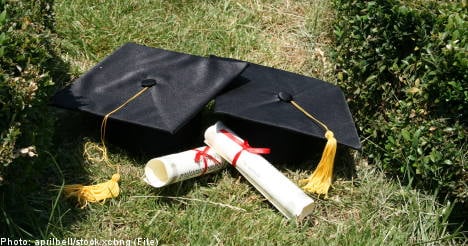”Anyone can start anything and call it a university. I usually say that it is like setting up a hot dog stand” said Lennart Ståhle of the Swedish National Agency for Higher Education (Högskoleverket) to the Swedish Association of University Teachers’ (Sulf) union paper.
“At the Swedish National Agency for Higher Education we can’t have an opinion when it comes to this and they can establish themselves here as long as they follow Swedish tax laws. It is like any sort of business venture.”
Despite having been a problem in the US and the UK for a long while, fake universities are a fairly recent phenomenon in Sweden.
However, with the advent of tuition fees at Sweden’s universities and a British crackdown on the ”fake college” industry as well as stricter rules on student visas, the country is now experiencing a flurry of activity from schools wanting to establish in Sweden.
”Sweden’s become an interesting market as these schools say they only charge half of what Swedish universities are charging. They are using our good name, as Sweden is seen as a trustworthy country to study in,” Ståhle told newspaper Sydsvenskan.
Sydsvenskan mentions a few colleges, all with English sounding names.
One offers courses in business administration from an address in the Stockholm suburb of Solna while another, apparently located centrally in the district of Södermalm, offers courses in business management, travel, tourism and hospitality management, as well as accounting.
A third school, this time in the suburb of Sollentuna, claims to have premises with class rooms and a cafeteria, as well as offering seven courses in different subjects.
But according to Sydsvenskan, the National Agency for Higher Education found that its address turned out to be located on top of a car repair shop.
Another turned out to have a Stockholm phone number but the line had been cut off, according to the Sulf newspaper.
Yet another had a post box in an office building in the capital, but a British phone number, while one apparently showed pictures of Stockholm City Library’s interior, claiming it was the school’s, reported the paper.
However, according to Ståhle it is difficult to know if these schools are breaking the law, as the agency has no right to investigate a centre of learning that isn’t offering a Swedish qualification.
”We can’t make an official judgement on any of these ”colleges”. We don’t control them. They are none of our business, so to speak,” Ståhle told the Sulf union paper.



 Please whitelist us to continue reading.
Please whitelist us to continue reading.
Member comments